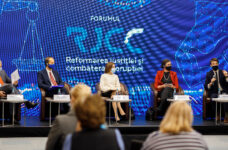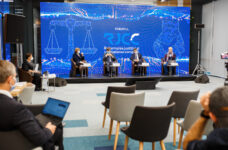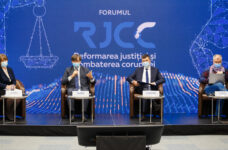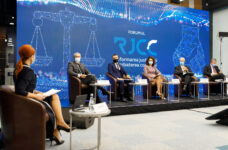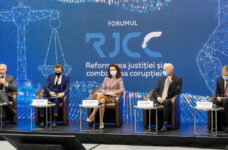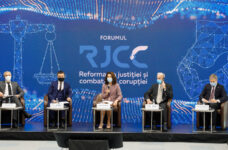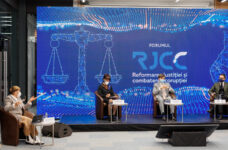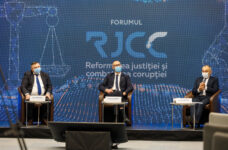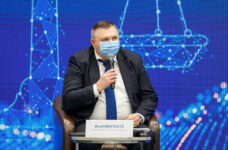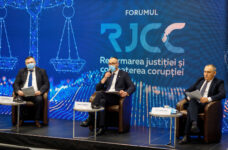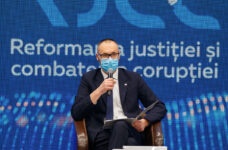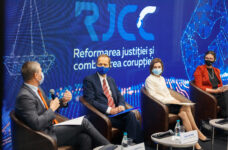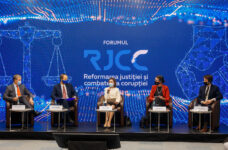The “Justice and Anticorruption Reforms” Forum took place last week, on 18 and 19 November, in Chisinau. The event brought together politicians, the main actors in the justice sector, development partners’ representatives, international experts and members of the civil society, on the same discussion platform.
They discussed the main directions of the justice reform, the judicial vetting, as well as the vision on combating corruption and the investigation and sanctions for the grand corruption.
The Forum was opened by the President of the Republic of Moldova, Maia Sandu, who came with a strong message addressed to the employees of the justice sector, stating that “We must stop illegal practices that have become a norm – we must stop the favours, the abuse, the usage of the position for personal gain, the undue advantage”. She also declared that despite the resistance, “things will continue to move in the direction of change”.
Janis Mazeiks, the Ambassador of the European Union to the Republic of Moldova and Katarina Fried, the Ambassador of Sweden, emphasized, in this context, that other issues such as the transparency and accountability of policymakers in reforming the justice system in a fair and non-abusive way remain equally important. Johnny Walsh, USAID Deputy Assistant Administrator, declared that an efficient fight against corruption must include political dialogue, a vibrant civil society, a free media and a cooperation with development partners.
A particular interest has been given to the judicial vetting, which involves an external evaluation of the integrity of actors from the justice sector, as stated in the reform announced by the authorities.
The process could start next year, by vetting the candidates of the Superior Council of Magistracy and the Superior Council of Prosecutors, the Supreme Court judges and the anti-corruption prosecutors. Around 1000 people are expected to be evaluated and the evaluation could take 4-5 years.
The process is highly complex, it requires maximum transparency and exemplary regulation, it cannot be implemented without the development partners and if it is not properly done, it could pose a risk to the independence of justice.
The vetting can hardly solve the problem of independence and professionalism of judicial actors; therefore, it is imperative for it to be accompanied by other reforms, such as the streamlining of the judicial self-administration bodies, the National Institute of Justice, the Supreme Court of Justice, the Anti-Corruption Prosecutor’s Office and the National Integrity Authority.
The “Justice and Anticorruption Reforms” Forum discussions were also focused on the anti-corruption agenda and the main priorities in this segment. The idea of merging the National Anti-Corruption Centre and the Anti-Corruption Prosecutor’s Office is gaining momentum, as well as the need to increase the level of education, digitalization and transparency of the economic processes.
The experts who have participated in the Forum reaffirmed the need to establish a specialized body to investigate the grand corruption, endowed with greater autonomy, properly equipped, with a narrow competence and with people of integrity and courage. These ingredients, however, are not easy to obtain after decades of mimicry of justice reforms.
The Legal Resources Centre from Moldova will develop a comprehensive document with the main conclusions and recommendations to be sent to the Ministry of Justice, other decision-makers as well as to the development partners.
No Url FoundThe “Justice and Anticorruption Reforms” Forum, was organized for the third consecutive year by the Legal Resources Centre from Moldova within the project “Institutional Support for Organizational Development” funded by Sweden.

